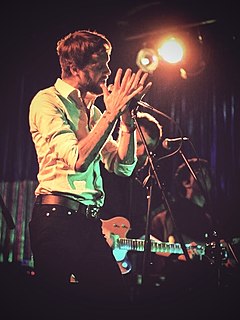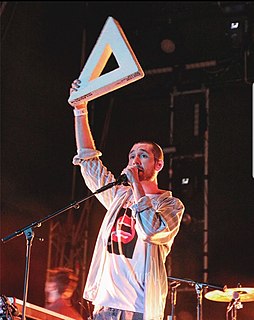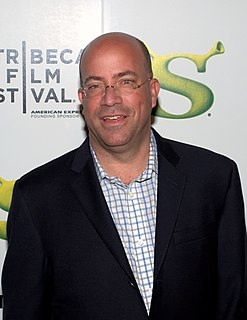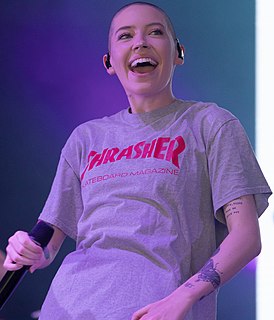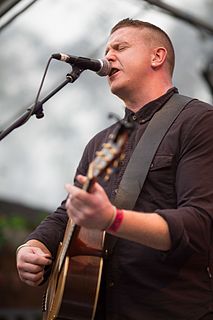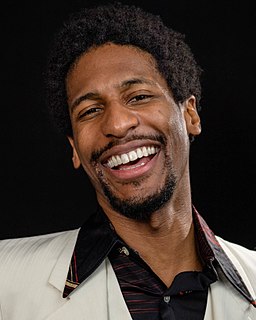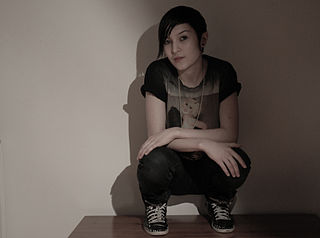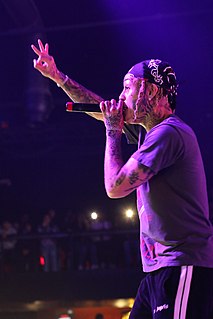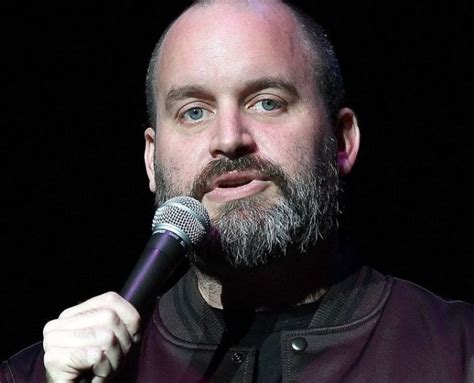A Quote by Ben Lovett
I guess I would definitely feel a bit of a void in what people are getting from music these days. And I think that the problem lies not so much on the listener. People kind of listen to what is presented to them, whether it be on the radio or at a local venue.
Related Quotes
I guess I have some kind of a visceral connection with drums. I'm looking to create music that people can react to viscerally, and people will respond to viscerally. I think that you can listen to music, to a song you've never heard before and not really like it, but also feel like you're responding to it physically whether you like it or not. I think that's a powerful aspect about music, and I think that's something that draws me to drums.
I'm not a nostalgic person for the glory days of 8-track sales at the local K-Mart. But there's a little bit of flattery and a little bit of horror. It's a mixture. It's like sublime shock and awe, but also terror. That's always the way I feel about how music flows through those types of networks. I'm mostly cool with it, but I definitely appreciate when people support the work.
The average age of the Jazz audience is increasing rapidly. Rapidly enough to suggest that there is no replacement among young people. Young people aren't starting to listen to Jazz and carrying it along in their lives with them. Jazz is becoming more like Classical music in terms of its relationship to the audience. And just a Classical music is grappling with the problem of audience development, so is Jazz grappling with this problem. I believe, deeply that Jazz is still a very vital music that has much to say to ordinary people. But it has to be systematic about getting out the message.
I definitely don't have a music industry goal because I've done that and completed that work. My quest is to find new platforms for music to live. Once we do that and find different ways of getting music to people, whether that's 5000 or 1 million people, I'll feel successful. I want to make sure I'm adding something to the marketplace, so that's my goal.
I was in my teens and I was going through a bit of a phase, drinking a lot and doing E tablets and getting into street fighting and getting depressed. Then I'd listen to Marley and it lifted me out of it. I'd like to try and do the same for kids, that my music would give them a bit of hope and strength, and they'd know that I was telling the truth and I wouldn't lie to them.
With the audience, I always say it's about giving the people an experience. And what the experience is about, it transcends just the music, and genre, and the venue. It's about the people coming together to share a profound and transformative moment. So that means the listener is actively engaged, and the listener is a part of the show, they're a part of the experience.
I've never really found it that important to focus too much on the fact that I'm a female. I feel like if you make a thing of it then it becomes a "thing." For me personally, gender has always been one of the last things on my mind and I would much rather let the music do the talking. It was definitely surprising at the start to see how many people often got shocked that I would do the entire part of the composition/production/mixdown process on my own, but I don't think women are pigeonholed as much these days.
When I was younger, definitely getting people to listen to me and believe in me. I think it's hard when you're a young girl in a record label full of male urban artists, which is definitely what Atlantic Records was and still is. Also, getting people to trust a young, female pop star that doesn't just want to be puppeteered was definitely a challenge for me.
I think, to be a great conversationalist, you need to be interested in being in said conversation. Oddly enough, I think you need to be a great listener, and I do think I'm a good listener. I think that's my asset - I always listen to people when I talk to them, and that's a big thing you have to have in life and in podcasts.
